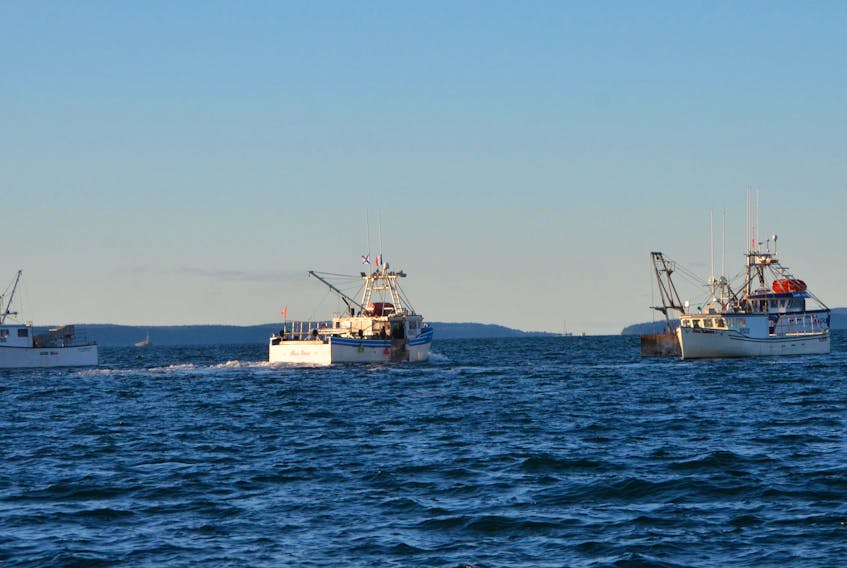Monday was another tense day up on St. Mary's Bay, as Saltwire Network's Aaron Beswick explains elsewhere: Mi'kmaq fishermen, emboldened by a decades-old Supreme Court of Canada ruling affirming their treaty right to hunt, fish and gather in pursuit of a moderate livelihood, spent another day trying to drop their lobster traps in the waters there.
Pitted against them were non-indigenous fishers who claim that the natives are threatening the local lobster fishery's sustainability, and who have been making their point by cutting First Nation traps, and trying to pressure buyers not to purchase their harvest.
Once again, the federal government stood mutely by, unwilling to clarify the question of what constitutes a “moderate livelihood” fishery, and then, by omission, further fuelling a situation that looks like it could turn violent at any moment.
It sounds, therefore, strangely like the scene I encountered 21 years ago in Burnt Church, N.B.
There, following the aforementioned Supreme Court decision, First Nation fisherman dropped thousands of traps in the Gulf of St. Lawrence, as frustrated nonnative fishers were forced to keep their boats tied up because their season had ended.
Things got testy fast back then: almost all of the native traps were cut; out on the water Indigenous fishermen were threatened with gunfire; onshore trucks, a house, and a native religious structure were torched; after some native men were beaten, trying to take back their traps from the back of a non-indigenous truck, native warriors began arriving from other reserves, warning that if the RCMP refused to protect their people, they would.
“I'm not surprised,” Dan Paul, the Mi'kmaq historian said Monday when I asked him about the current situation in St. Mary's Bay. “All these years and the federal government with a responsibility to do something. I lay the blame directly in their lap.”
He had something else to say. It was directed at the nonIndigenous fishers who have taken such a hard line with the newcomers on St. Mary's Bay.
Paul's message — that it behooves everyone to “have a look at the whole history” of relations between the Acadians and the Indigenous folks in Nova Scotia before losing their cool — makes perfect sense.
Basque fishermen, after all, have been working off the coast of Nova Scotia, and getting along with the Indigenous people living here, since the 16th century. When Champlain, de Mons and the other hardy souls wintered at Saint Croix Island in 1604, half of them were dead from scurvy when the river thawed and the first peoples arrived with fresh meat.
Historians tell us that was only the beginning of a French-indigenous connection that deepened over time until “relationships based in trade, kinship, and religion between the Mi'kmaq, French fur traders, Acadian settlers, and French missionaries had developed,” according to Parks Canada's website.
It helped, in Paul's view, “that the French didn't consider the Indigenous people non-humans or inferior humans like the British did.”
Things were cozy enough between those with French and aboriginal roots that Paul estimates that 90 per cent of the province's Acadians have some Mi'kmaq or Maliseet blood flowing through their veins.
A common enemy helped. By the 18th century these communal, economic, and social relationships were at the root of a French-mi'kmaq political and military alliance against England, then trying to assert its dominion in the New World.
During this period, Mi'kmaq fought side-by-side with French soldiers. Sometimes they engaged in their own raids on British ships and settlements all up and down the eastern seaboard.
Eventually England won the war for the continent. When the expulsion of the Acadians began, some of them found shelter with their Mi'kmaq allies in the forests of Nova Scotia.
Post-expulsion, the historic relationship changed according to University of Moncton historian Gregory Kennedy. Between the Acadians who remained or returned, and the Mi'kmaq, who have always been here, it became “more a question of competition for resources,” Kennedy explained Monday.
That old story in some level is being replayed on St. Mary's Bay even as you read these words.
It seems fitting, then, to heed Kennedy's advice, and harken back to a time when the relationship between these historic allies was marked by “accommodation and negotiation” which is not, remotely, what was going on yesterday.









